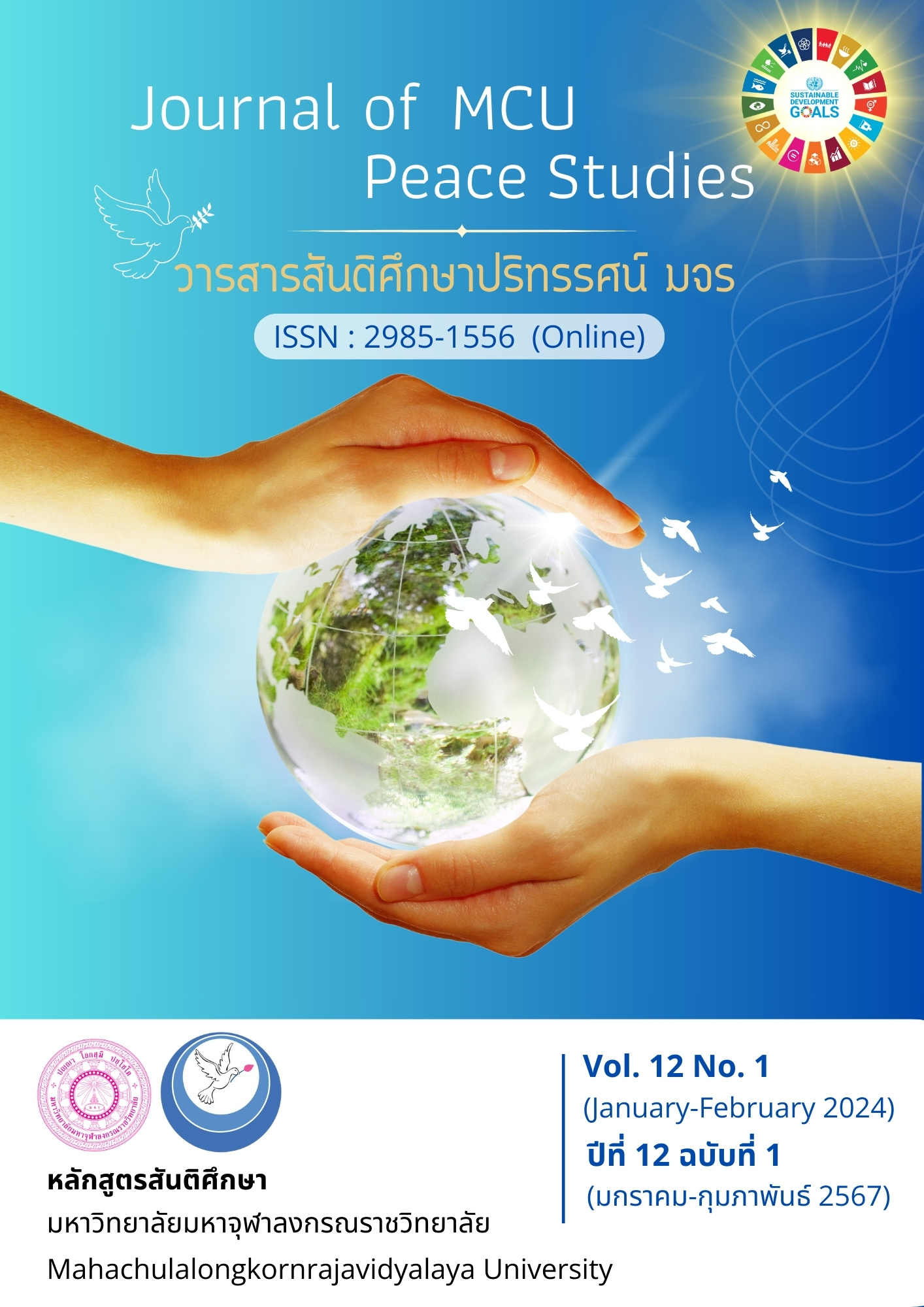Administrative Factors of the Bilateral Vocational Education System Supporting Changes in the 21st Century of the Vocational Education Institutes in the Northern Region
Main Article Content
Abstract
The research article consisted of the following objectives: 1) to investigate the administrative factors of the bilateral vocational education system; and 2) to analyze the confirmatory factors for the administration of bilateral vocational education system. The study employed both quantitative and qualitative methods. A sample group comprised 432 administrators in the office of the Vocational Education Commission and 24 experts who were students and specialized in educational administration. The instruments used were a questionnaire and an interview form. The statistics used were frequency, percentage, mean, standard deviation, confirmatory factor analysis, and content analysis.
From the study, the following results are found:
1) The administrative factors of the bilateral vocational education system that support changes in the 21st century to the vocational educational institutes in the Northern region consist of five aspects, which are: personnel, curriculum, measurement and evaluation, teaching and learning management, and cooperation with enterprises. The results of the administrative model for the bilateral vocational education system comprise administrative principles and objectives, administrative factors, administrative processes, and the evaluation of model results. A model is of propriety and feasibility at the highest level.
2) When testing the validity of a model, the results show that a model is congruent with the empirical data (Chi-square = 80.41, p = 0.20, df = 71, RMSEA = 0.012, GFI = .99). This shows that a model is congruent with the empirical data, which proves that the factors are of propriety compared to the criteria of social science research.
Article Details

This work is licensed under a Creative Commons Attribution-NonCommercial-NoDerivatives 4.0 International License.
Views and opinions expressed in the articles published by The Journal of MCU Peace Studies, are of responsibility by such authors but not the editors and do not necessarily reflect those of the editors.
References
Butsaenlee, N. (2018). A Development of Dual Vocational Education Management Model Effectiveness Base under Vocational Education Commission by the Process Participatory Action Research. (Master’s Thesis). Burapha University. Chonburi.
Dawreong, J. (2017). A Scenario of Dual Vocational Education in the Colleges under the Office of the Vocational Education Commission in the Next Decade (2016-2026). (Doctoral Dissertation). Rajanagarindra Rajabhat University. Chachoengsao.
Jöreskog, K. G., & Sörbom, D. (1989). LISREL 7: A Guide to the Program and Applications. Chicago: SPSS.
Mungmuang, N. (2017). Collaboration Development of Dual Vocational Education Management of Industrial and Community Education Colleges in Upper Northern Region. Ganesha Journal, 13(1), 133-146.
Office of the Basic Education Commission. (2016). Approaches to Learning Management in the 21st Century. Bangkok: Office of the Basic Education Commission.
Office of the Secretariat of the Council of Education. (2018). Thai Study Report 2018. Bangkok: Office of the Secretariat of the Council of Education.
Office of the Vocational Education Commission. (2015). Educational Quality Assurance Criteria and Practice Guidelines. Bangkok: Office of the Vocational Education Commission.
Phoomchusak, C., Wannasri, J., & Chaowachai, S. (2021). The Management Model for Work Integrated Learning of School under Office of Vocational Education Commission. Journal of MCU Peace Studies, 10(7), 3143-3155.
Preewan, P. (2015). Causal Relationship Structural Model of Factors Affecting the Effectiveness of Dual Vocational Training Administration. VRU Research and Development Journal Humanities and Social Science, 10(3), 327-338.
Rinthaluek, S., & Saengsawang, W. (2021). Dual Vocational Training System Management toward Excellence in Schools under Chachoengsao Vocational Institutes. Journal of MCU Social Science Review, 10(3), 39-53.
Saohin, T. (2018). The Development of a Participatory Management Model in Dual System of Educational Institutions under the Office of Vocational Education Commission. Electronic Journal of Open and Distance Innovative Learning, 9(1), 95-105.
Srichomphu, T. (2014). The Model Development of Administration for Dual Vocational Training in Education Institutes under the Office Vocational Education Commission. Journal of Education Naresuan University, 16(3), 120-131.
Thai Government. (2020). Cooperative Education and Integrated Education Management. Retrieved January 3, 2023, form https://www.thaigov.go.th/news/contents/details/24520


